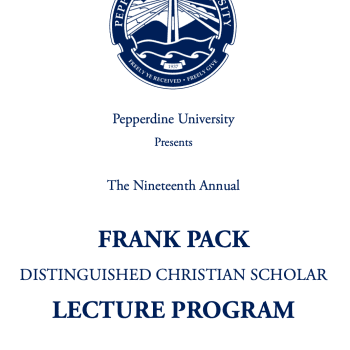Of all the founding fathers, Thomas Jefferson is the most complex. He was the primary author of the Declaration of Independence—the document that declared that we are "endowed by our Creator with certain unalienable rights, namely life, liberty and the pursuit of happiness." He was the author of the Virginia Statute for Religious Freedom—one of the greatest statements on religious freedom in the history of the world. He was the founder of one of our great public universities—the University of Virginia. He defended the rights of the common man and he staunchly opposed big and centralized governments that threatened individual liberties.
At the same time, Jefferson was a slaveholder. Although he made several efforts to try to bring the "peculiar institution" of slavery to an end, he never succeeded. Jefferson needed his slaves to maintain his Virginia planter lifestyle—complete with all its consumer goods and luxury items. He was in debt for most of his adult life. And he is likely the father of several children born to his slave Sally Hemings.
Jefferson's story reminds us that history is complicated. As Christians, we must always remember that there are no heroes in history. We are flawed, sinful human beings in need of redemption. Even the great ones, like King David, fail. But there are also no villains in history. All of us have been created in the image of God and thus possess dignity and worth. History reminds us that when we put our confidence in people, whether they lived in the past (such as the founding fathers) or live in the present, we are likely to be inspired by them, but we are just as likely to be disappointed.
Jesus made it clear that as Christians our highest calling is to the "Kingdom of God." Many of us pray, "Thy Kingdom come, Thy will be done, on earth as it is in heaven." The Kingdom of God has both heavenly and earthly dimensions.
As I have recently learned from reading my colleague Richard Hughes's excellent book, Christian America and the Kingdom of God, the Kingdom of God is characterized by peace, love of neighbor, a belief in the dignity of all of God's human creation, and an exaltation of what Jesus calls the "least of these." The Kingdom of God, to quote biblical scholar John Dominic Crossan, "is what this world would look like if and when God sat on Caesar's throne. The Kingdom of God is about the will of God on earth." The Kingdom of God is universal. It is not to be confused with any earthly nation. The "city on a hill" in the Sermon on the Mount is a reference to the Church, not to the Massachusetts Bay Colony (John Winthrop) or the United States of America (Ronald Reagan). When Jesus calls us to be the "light of the world," he was not commanding us to spread American democracy, but the Gospel. To equate the Kingdom of God with the United States or any other country is a form of idolatry.
Now it is certainly true that anyone who studies American history will see glimpses of the Kingdom of God. There are redemptive moments in American history when the will of America and the will of God appear compatible. Consider, for example, America's history of immigration. America has always been committed to providing a haven for the poor and oppressed of the world. Lady Liberty, speaking for America in the words of the poet Emma Lazarus, reminds us that the United States has always wanted the world's "tired, their poor, and their huddled masses yearning to breathe free."
Martin Luther King, Jr.'s vision of a Christian nation—a nation in which human beings are defined not by the color of their skin, but by the content of their character—is certainly compatible with human dignity in the Kingdom of God. In his famous "Letter from a Birmingham Jail," King stood up for God-given rights and "what is best in the American dream and for the most sacred values in our Judeo-Christian heritage."
Other times, however, the Kingdom of God seems to be at odds with the will of America. It is hidden, covered by the reality of sin, reminding us that the effects of the third chapter of Genesis are all too real in our everyday lives. Here we can think about the horror of the institution of slavery, or, as Abraham Lincoln wrote in his Second Inaugural Address, "the 250 years of unrequited toil" that slaves endured in both the North and the South. Jefferson's "pursuits of happiness" have been defined now as little more than the pursuit of wealth and consumer goods. Here we can think about the ugly examples of American imperialism or the many, many stories—from Enron to Watergate to the Tea Pot Dome—of government and corporate corruption.





